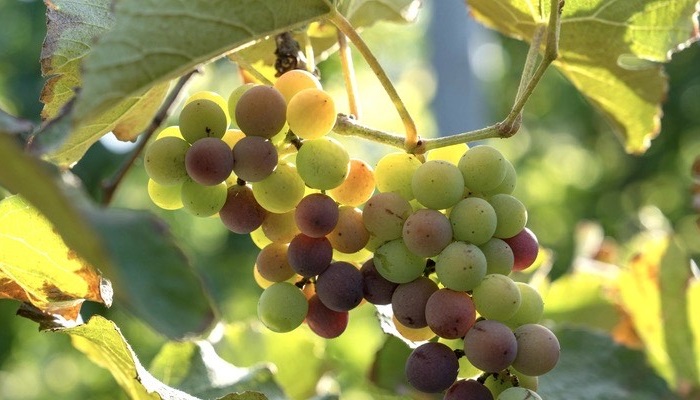The grapefruit harvest season has begun in North Al Sharqiyah Governorate in Oman, lasting from mid-May to the end of July. Grape cultivation is common in various states of the Sultanate of Oman, particularly in mountainous areas with moderate temperatures in the summer. Dr. Qais bin Saif Al-Ma’awali, Director of the Agricultural Development Department, stated that grape cultivation is prevalent in several governorates of Oman, with Al Sharqiyah having about 200 acres of cultivated land and an estimated production of 1,000 tons. This represents 4.2% of local consumption, totaling approximately 24,000 tons annually, with an economic return of around OMR 1.5 million.
The Ministry of Agricultural Wealth, Fisheries, and Water Resources has been actively promoting the development of grape cultivation in Oman. Initiatives include the establishment of model grape farms in the Wilayat of Ibra, North Al Sharqiyah Governorate. Additionally, the ministry has implemented projects to support grape cultivation in various governorates, with the aim of establishing economic grape fields for local farmers. Gene banks for the grape crop have been set up in Jammah and Sohar to preserve genetic diversity and support the industry.
The total area of grape fields in North Al Sharqiyah Governorate is estimated to be 27 acres, with the largest areas located in the Al Rawdah village. The growth index of grape fields in the region has shown a significant increase, from 8 acres in 2012 to 27 acres in 2023, representing a growth rate of 237%. This growth demonstrates positive efforts to advance the agricultural, tourism, and economic sectors in the governorate.
In December 2023, the Ministry of Agricultural Wealth, Fisheries, and Water Resources signed an agreement to finance the model grape farms project in North Al Sharqiyah Governorate. The project is funded by the Agricultural Development Fund and the Omani Fertilizer Company, OMIFCO. The agreement aims to establish a model investment farm for grapes, with a focus on tourism agriculture projects. The fields will be managed by specialized farmers practicing good agricultural practices and modern cultivation techniques to produce various types of grapes using advanced technologies.
Overall, grape cultivation in Oman plays a significant role in supporting food security and economic development in the country. The government’s focus on promoting grape cultivation through various initiatives and projects, including the development of model grape farms, is expected to have a positive impact on the agriculture sector and contribute to the sustainability of grape production in the Sultanate. With continued support and investment, the grape industry in Oman is poised to thrive and contribute to the country’s overall agricultural and economic growth.











